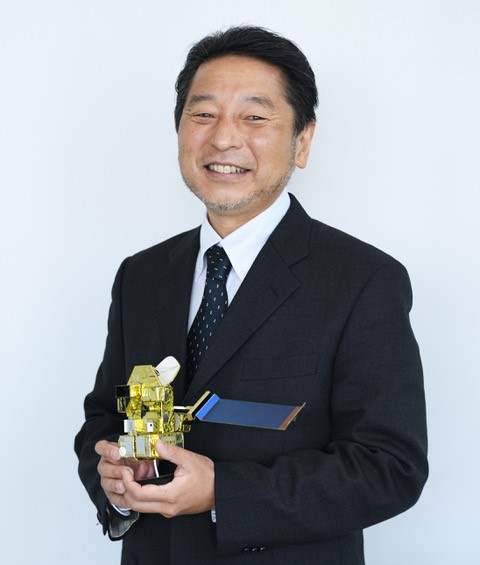Profile
Professional Experiences:
Contact us
Dept. of Human & Information Science
School of Information Science & Technology
Nakajima Laboratory
4-1-1 Kitakaname Hiratsuka, Kanagawa 259-1292, Japan
E-mail :
Specialized research fields
- Remote Sensing from Earth Observing satellites
- Atmospheric Radiation, Light Scattering
- Satellite sensor system
- Data Processing Algorithm
Research interests
- Study of analytical algorithm for satellite data
- Study of satellite data analysis system
- Risk management in atmospheric environment.
- Study of programming technique and library construction
- Analysis of capability for the next generation sensor measurement
- Study of radiative transfer
Introduction of researches
Understanding the Earth’ nature. This is the first step to solve Earth environment problems such as global warming. “Information systems” play an important role in serious issues concerning the continuance of the humankind. Earth observing satellite remote sensing is a remarkably promotive research field covering both of science and engineering.
To optimize satellite sensors for observation objects, to simulate signals sensed by satellite sensors, to build analysis algorithms on the basis of the simulation results, to code programs based on the algorithms, and then to get new knowledge by studying the results are all our research subjects which we face on remote sensing from Earth observing satellites. We have a lot of research projects, varying from basic issues such as building scattering theory of electro-magnetic waves (light and microwaves) to applied issues such as consideration of satellite observation data analysis and processing results. We join actively Earth Observation satellite projects all over the world and contribute to modern society.
We want all of you students to experience how important “information systems” is in Earth environment problems.
Selected books and publications
★ Link to Research Results
Societies
- Japan Geoscience Union (JpGU)
- Meteorology Society of Japan (MSJ)
- The Remote Sensing Society of Japan (RSSJ)
- American Meteorological Society (AMS)
Selected Awards
- 1998 SICE 5th Remote Sensing Forum, Research Incentive Award.
- 2003 JAXA, Excellent Job Performance Award. (“ADEOS-2” data analysis team)
- 2004 JAXA EORC, Best Paper in the Year Award.
- 2011 Tokai University, Dr. Matsumae Shigeyoshi Encouragement Award (Academic field).
- 2011 Remote Sensing Society of Japan, Reseacher Award.
- 2011 Meteorological Society of Japan, Horiuchi Award.
- 2021 Tokai University, Dr. Matsumae Shigeyoshi Award (Academic field)
Collaboration to Medias
- 2005 nature (nature, vol. 434, 2005)
- 2008 Weather News
- 2008 NHK Special (NHK, “A story of rainfall”)
- 2010 Volcanic eruption in Iceland (FUJI TV, Mainichi Newspaper, Nikkei Newspaper)
- 2010 Kosa (yellow sands) event in fall (Mainichi Newspaper)
- 2010 TV Tokyo
- 2011 NHK Special (NHK)
- 2011 Asa-ichi (NHK)
- 2011 Mainichi Newspaper (TOKAISM)
- 2013 TV Asahi (Solar Car Race in Australia)
- 2014 NHK Science Zero
- 2014 NHK Cosmic front
- 2015 NHK BS Cosmic Fromt * NEXT
- 2015 BS Japan (Solar Car Race in Australia)
- 2015 Mainichi Newspaper (Himawari eye)
- 2015 NHK Toukou DO-ga
- 2016 Myn special interview
- 2017 Nikkei-sangyou Newspaper
- 2017 NHK Chouzetsu Sugowaza
- 2017 BS Japan
- 2017 JAXA H2A Flight 37, Interview
- 2017 Tokai University press
- 2018 Mainichi Newspaper (TOKAISM)
- 2019 NHK Chiko-chan-ni-shikarareru!


